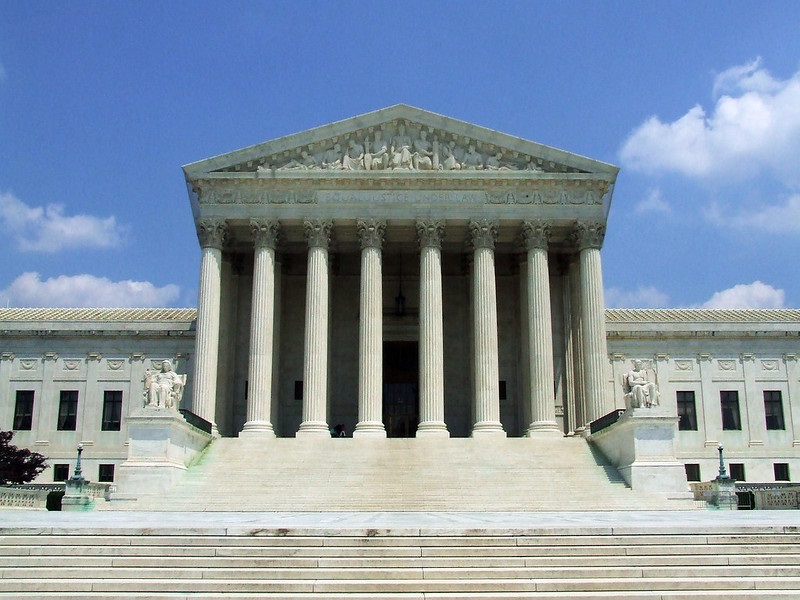Biden will appoint a black woman to the Supreme Court: Who should it be?
creinehr via creativecommons.org
President Biden, who has announced he will appoint a black woman to be the the next U.S. Supreme Court justice, has an opportunity to appoint a judge who will rule with clarity and fairness.
With the upcoming retirement of Justice Stephen Breyer, President Joe Biden has the opportunity to appoint a new justice to the Supreme Court. Since there are no term limits for Supreme Court justices, whose appointments to the court generally are considered lifetime appointments, whoever is appointed will join an exclusive club. When appointed, the new justice will have the chance to rule on cases that make it to the highest court in the land for decades to come.
The eight justices currently on the court are Associate Justice Clarence Thomas, appointed by George H. W. Bush; Chief Justice John Roberts and Associate Justice Samuel Alito, appointed by George W. Bush; Sonia Sotomayor and Elena Kagan, associate justices appointed by Barack Obama, and Neil Gorsuch, Brett Kavanaugh, and Amy Coney Barrett, all associate justices appointed by Donald Trump. With Justice Breyer retiring, Biden will be replacing one of the three more liberal justices on the court (the other two being Sotomayor and Kagan) and has pledged to nominate a black woman.
This appointment won’t change the balance of the court — the new liberal justice will be in a 6-3 minority — but that doesn’t necessarily doom the new justice to irrelevancy. Whoever is appointed to fill the vacancy will have an opportunity to convince the other justices to rule with her on whatever cases reach the bench. Justices Barrett, Gorsuch, Kavanaugh, and Chief Justice Roberts are relatively close to the political center when compared to Justices Thomas and Alito, so convincing them to rule with the liberal side on a given case is a feasible task, as long as the new justice and the liberals are up to it. The appointment of a black woman also will give the court a new, diverse voice that hasn’t been seen before.
While the White House hasn’t stated who they will pick for the seat, considering the limited number of high-profile black female judges, there are three likely picks.
Option number one is Judge Ketanji Brown Jackson. Jackson, a Harvard Law School graduate, currently is on the D.C. Circuit Court of Appeals and managed to get there with bipartisan support. Her nomination was supported by Republicans Lisa Murkowski, Lindsey Graham, and Susan Collins. With a background in public defense that has heavily influenced her career, Brown is an easy choice.
Another Option is Judge J. Michelle Childs, a University of South Carolina Law School graduate and district court judge in South Carolina. Childs has endorsements from key lawmakers such as Rep. Clyburn and Senator Graham. As far as endorsement-forward picks, Childs is great, and Biden would be adding more diversity in the backgrounds of justices, as Childs would be one of two non-Harvard or Yale Law School graduates on the court.
However, there is a third option. A judge best suited to being one of three liberals on the court who, while young, has developed an impressive reputation as a keen legal mind and as a non-dogmatic, rational jurist: California Supreme Court Justice Leondra Kruger.
Kruger is only 45 years old, but appointments to the court for someone that young aren’t unheard of; Justice Clarence Thomas was 43 when he was appointed. However, unlike Thomas, who lacked much experience in state and federal courtrooms, Kruger has managed to build an incredible resume.
She’s currently an associate justice on the California Supreme Court but has argued 12 cases before the Supreme Court when she worked with the Department of Justice, as a member of the solicitor general’s office and deputy assistant attorney general in the Office of Legal Counsel. She also has won the attorney general’s award for exceptional service not once, but twice.
Kruger has a reputation as a consensus builder, which could come in handy on a fractious supreme court. As cited by Dan Morain in his opinion for the Washington Post, the California Supreme Court reached unanimity in its opinions 89.74 percent of the time despite the court being divided along appointed party lines for much of that period.
Having Kruger on the court would increase the likelihood that the court rules not along party lines but on the facts presented, and increase confidence that the court made the right decision in any given case. When our highest court is becoming more and more politicized, a judge known for ruling with clarity and fairness, not ideology and dogma, could be just what the Supreme Court needs.











